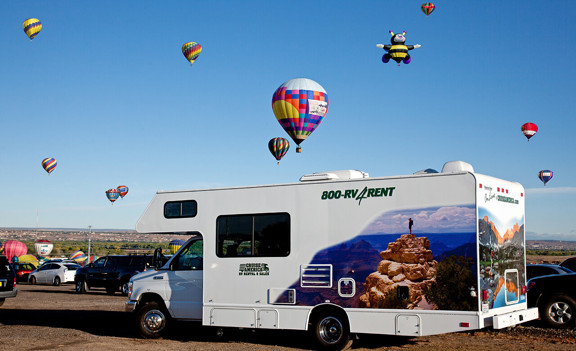
Every year without fail, as Tax Day approaches, Americans scramble to find every possible claim, deduction, or other tax benefit under the sun. From business expenses to charitable donations, there are many things you can claim to reduce your potential tax burden, including payments on your home.
As people increasingly take to the road in RVs, often living full-time in them, many taxpayers rightfully wonder whether they can claim an RV they own as a primary or secondary residence on their taxes. The good news is that, yes, you can generally claim an RV as a residence for tax purposes — provided you meet certain conditions.
But what are those conditions? What do you need to do to claim an RV as a residence on your taxes? Read on to learn all about how RV owners can claim an RV when filing their taxes!
Why Claim an RV as a Primary/Secondary Home?
Why would you want to claim an RV as a primary residence on your taxes? There are several good reasons why you might want to do this. For instance, you probably took out a loan to buy your RV, right? You may be able to deduct the interest on that loan when you file your taxes.
It Could Bring Other Financial Benefits
Declaring your RV as your primary residence could bring other financial benefits, like lower property taxes or otherwise lowering your overall tax burden. One way to do this is by deducting the sales tax you paid on it.
You may also be able to deduct vehicle registration fees from your taxes, which can be considerable for an RV; this, however, depends on your state of residency.
To Be Firm in and Confident About Your Choice
Another reason for claiming your RV as your primary residence on your taxes is to justify the choice you made to live the RV lifestyle. Giving up a fixed address for life on the road is a bold choice, and it's understandable to have doubts.
It might not seem real to you until you file your taxes and declare your RV as your primary home residence to the IRS. Aside from the financial benefits, this signifies a commitment to a different way of living — both to yourself and your family!
What is a Primary Residence, According to the IRS?
Generally, the IRS defines a primary residence as where you spend most of your time and that you think of as your main home. In order to claim it on your taxes, though, you have to own it, and you have to keep most of your personal belongings within it.
Importantly, you cannot use it more for business purposes than for actual residential reasons (such as sleeping, eating, etc.).
What Qualifies as a "Home"?
In addition to being where you spend most of your time and where you keep your things, to claim your RV as your primary residence, it must be able to be used as a home. In other words, it needs the basics: A place to sleep, a kitchen and appliances for cooking, a bathroom with a toilet and shower, and so on.
It may not look like a "home" on the outside, but it definitely should inside!
What About Secondary Residences?
It's a bit harder to define what a secondary residence is, as there's no particular definition the IRS uses to define one (actually, the same goes for primary residences, too, beyond "main home").
However, a good rule of thumb is that if a place/property (or RV) is used for personal reasons (say, as a vacation home) for some of the year and not primarily for business or investment use, then it probably meets the criteria for a secondary residence.
Secondary Homes Bring Potential Tax Benefits, Too!
The good news here is that, just as declaring an RV as your primary residence, if you're paying off a loan for an RV you declare as a secondary home residence, you can deduct the interest on that loan!
How the Time You Spend in Your RV Affects Taxes
One big thing to consider with all of this is how much time you spend in the RV you would like to claim as your primary or secondary residence on your taxes.
If you have a fixed property (like a house) but only spend a few weeks or months there each year, then wherever you spend most of the rest of the year — even in an RV — should be claimed as your primary residence...and vice versa.
You Still Gotta Have a Fixed Address
RV owners who want to claim an RV as their primary residence face another hurdle from the IRS: You must have a permanent address for it, at least for tax purposes.
Luckily, this is actually one hurdle that's pretty easy to jump over: You can use a P.O. Box, freeing you up to be or go wherever you want and still claim your primary residence RV has a permanent address.
Pitfalls of Declaring an RV as a Residence on Your Taxes
Sure, there are benefits to declaring an RV as your primary or secondary residence on your taxes, but there are also potential pitfalls.
One big thing you have to be sure of is that your RV residence meets state residency requirements.
While you can absolutely use a P.O. Box for the purpose of declaring your RV as a primary or secondary residence, if you don't meet the residency requirements of whichever state that P.O. Box is located in, you could run into trouble with the IRS.
This is something you should really try to avoid, so if you're going to declare your RV as your primary residence, be sure the address you use is in a state in which you spend most of your time each year.
How to Meet Residency Requirements for Secondary Homes?
If you're going to declare your RV as a secondary residence, the same principle applies: If you commonly spend more time in your RV when using it as a secondary residence out of your primary state of residence, it might be smart to keep it in storage in that other state between visits.
Other Things to Keep in Mind
Here's something to keep in mind when declaring your RV as a residence on your taxes: The IRS refers to one's primary residences as their "main home," and when you sell that "main home" at a profit, you're subject to capital gains taxes. The same holds true if your RV is your "main home," and you then sell it at a profit, which might give you pause.
However, unlike with a fixed property that tends to accrue more value as time goes by, it is actually pretty rare for the average pre-owned RV to see a similar rise in value over time. As newer models are released, older models — unless impeccably maintained — tend to lose a lot in value.
This means that when you sell your RV, you're probably going to sell it at a loss. Given the amount of money involved, you're going to have to file a 1099 form whether you sell your RV for a profit or loss — and you won't be able to deduct that loss from your taxes.
Find an RV to Use as a Residence at Cruise America
As you can see, it is possible to claim an RV as a primary or secondary residence on your taxes, as long as you're actually using it that way.
While it's too late to claim an RV you don't yet own on this year's taxes, it isn't too early to get the ball rolling on next year's. With that in mind, it's time to visit Cruise America.
Cruise America has a wide selection of pre-owned RVs, as well as rentals. So, if you're looking to make an RV your primary or secondary residence, get in touch with Cruise to find a vehicle you'll be proud to claim as your own — and not only on your taxes!
What are you waiting for? Call or visit Cruise America today!





